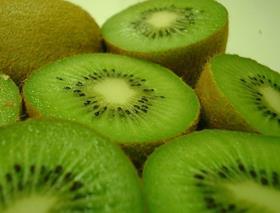
Just a week after New Zealand’s Serious Fraud Office confirmed it was launching an investigation into single-desk marketer Zespri, the Independent Kiwifruit Growers Association (IKGA) has renewed its calls for an enquiry into New Zealand’s kiwifruit export regulations.
In a comprehensive press release issued earlier this week, the association outlined a series of key points it claims warrant an independent inquiry, including alleged governance shortcomings at Zespri.
Last week, New Zealand’s National Business Review uncovered internal Zespri documents which showed the company was trading in China on consignment and not on “buy – sell” contracts as it had advised a Shanghai court during a fraud case brought against its Chinese subsidiary earlier this year, according to the IKGA report. The IKGA claimed Zespri’s handling of the case proved it was not willing to be accountable or transparent.
“If true (the accusations relating to trading on consignment), it means that Liu Xiongjie , the director of former Zespri importer Neuhof Trading Co, has been jailed in China for 13 years on the basis of misrepresentations made to the Shanghai Court by Zespri,” the IKGA said.
“These alleged misrepresentations appear to have been facilitated by current Zespri senior management including Zespri General Counsel Katherine Evans.”
Power in too few hands?
The IKGA also question’s Zespri’s legitimacy as a State Trading Enterprise, as it is described by the New Zealand government in filings with the WTO, claiming 75 per cent of its shares are now owned by less than 25 per cent of New Zealand kiwifuit growers.
“Shareholdings by some growers in excess of their production and shareholders who no longer produce kiwifruit but still hold shares and get Zespri dividends further threaten the underlying concept of the regulations governing the kiwifruit industry that they will produce a greater good for the greatest number of growers,” the IKGA stated.
The release went onto question why New Zealand taxpayers should continue to fund Zespri breeding programmes, such as the one responsible for producing the Hort 16A (Gold) strand.
“A further $35.7 million has been given to a joint venture between government agency Plant and Food Research and Zespri to breed new kiwifruit varieties,” said IKGA. “
“A review is needed to determine if taxpayer funds should be privatised in this way and whether these varieties should be entrusted to Zespri, which is a private company incorporated under the Companies Act ,or held for the benefit of all New Zealand kiwifruit growers.”
The value of Vine Health?
The IKGA also took aim at Kiwifruit Vine Health (KVH) Incorporated, requesting a probe into the research, science and spending of the body set up to manage the threat of the vine killing disease Psa.
“Taxpayer funding of NZ$25m has gone into KVH and they have now been given compulsory levying powers under the Biosecurity Act, but there is no requirement for KVH to be subject to any sort of probity audit. In fact, KVH has refused to allow an audit to check the probity of their spending of the taxpayer funding.”
Road to recovery
While the IKGA has called for a more regulated approach to providing Psa compensation, New Zealand Kiwifruit Growers president Neil Trebilco said the industry was now on the path to recovery from the disease.
“Psa is looking much less threatening this year and there is a level of optimism amongst growers that hasn't been there since Psa was first discovered in New Zealand back in November 2011,” Trebilco explained.“Growers are saying that they think they can make a success of the new Gold 3 variety in a Psa environment.
Trebilco admitted he knew little about the IKGA, saying the group wasnot mandated by New Zealand Kiwifruit Growers.
Responding to the IKGA’s calls for an independent inquiry, Trebilco highlighted the industry’s decision to conduct its own strategic project, taking into account global market changes and the current industry environment in New Zealand.
“The primary aim of this project is to develop a sustainable and long-term plan to maximise the wealth of New Zealand kiwifruit growers. Growers don't have to own shares in Zespri but approximately 85 per cent of growers do,' Trebilco said. As part of the strategic project, consideration is likely to be given as to how those remaining growers may be encouraged to buy shares.
Trebilco also underlined Zespri’s ability to deliver improved grower returns for green kiwifruit varieties this season.
“For green kiwifruit, Zespri is predicting $NZ 5.01/tray, our highest Orchard Gate Return for ten years,” Trebilco said.
“This is due to a number of factors but principally - the lowest fruit loss year ever both on and offshore, reduced packhouse costs and excellent market returns.”



